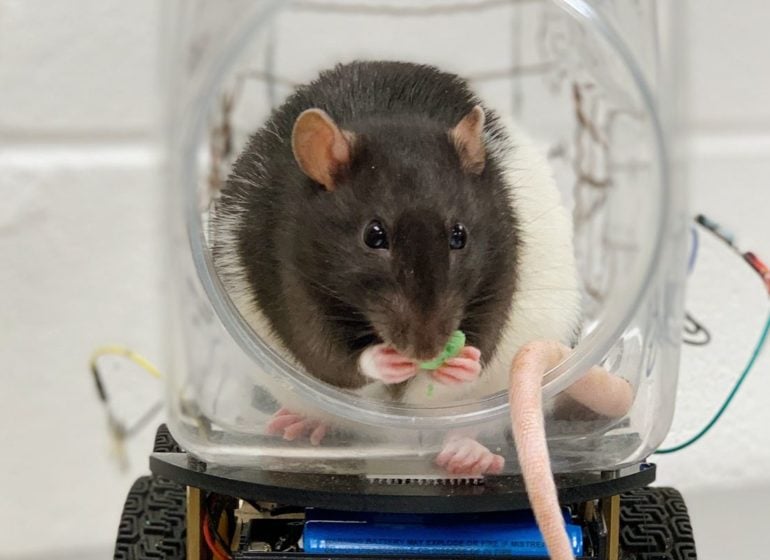Researchers at the University of Richmond in the United States taught 17 lab rats to drive little plastic cars as part of a scientific inquiry into mental disorders.
The study, which was published in the journal Behavioural Brain Research, saw the scientists offer their specimen cereals in exchange for learning to drive and found that they felt less stressed by doing so.
They used a tiny electric car made by attaching a clear plastic jar to an aluminum plate fitted to a set of wheels and taught the rats to touch a copper wire threaded horizontally across the jar in order to move in the desired direction where the cereals were located.

Following months of repeating the process, the rats got to learn not only how to make the mobile move but also how to change direction.
As the rats were raised in two different environments — a lab and what the research team termed an “enriched environment” — those raised in the latter became significantly better drivers than those of the former.
After testing both groups’ feaces, the team also found that the rats had higher levels of dehydroepiandrosterone, an anti-stress hormone, which the scientists believe is linked to the satisfaction derived from having learned a new skill.
Kelly Lambert, the lead author of the study, said its findings could aid medical professionals with the development of non-pharmaceutical treatments for mental illness.
“There’s no cure for schizophrenia or depression, and we need to catch up, I think we need to look at different animal models and different types of tasks and really respect that behaviour can change our neurochemistry,” she said, while speaking on the study’s relevance.
Copyright 2025 TheCable. All rights reserved. This material, and other digital content on this website, may not be reproduced, published, broadcast, rewritten or redistributed in whole or in part without prior express written permission from TheCable.
Follow us on twitter @Thecablestyle

